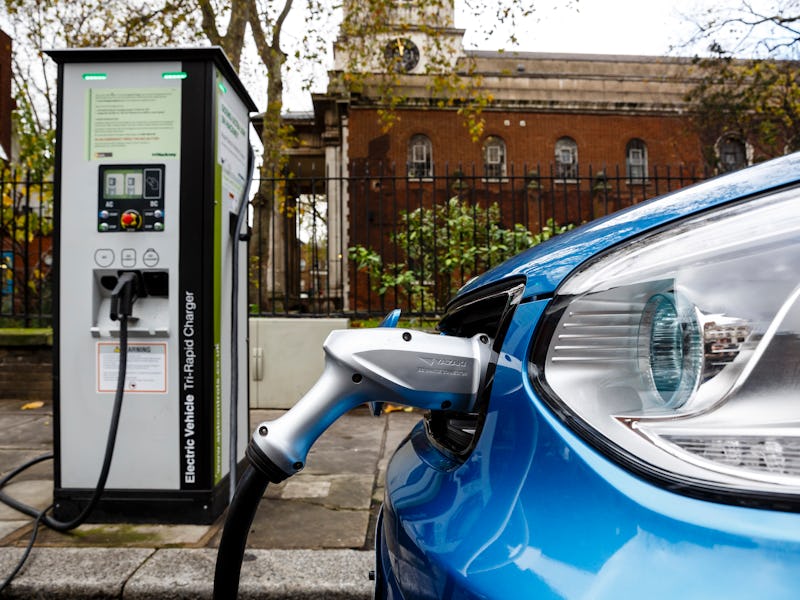The electric car has a bright future ahead, if Scotland is anything to go by. ChargePlace Scotland has reported charger use in its network has increased by more than 100 percent in the past year, reaching 26,119 uses in the month of August. Even more impressive, in the space of two years charging station use has increased nearly tenfold, signalling the birth of a new driving revolution taking place in the highlands.
“The evidence suggests that it is rapid chargers that are getting a disproportionate amount of use, which bears out the view that improving the convenience and speed of ‘filling’ up with electricity is mission critical to the wider take-up of these vehicles,” said Steve Gooding, director of the RAC Foundation, in a report published Thursday.
It’s an important lesson for the future of electric car adoption. Rapid chargers comprise nearly a fifth of ChargePlace points. Where normal points take around four to eight hours to recharge a car, rapid chargers take around half an hour to recharge a battery to 80 percent.
A Tesla electric-powered sedan stands at a Tesla charging station at a highway rest stop along the A7 highway on June 11, 2015 near Rieden, Germany.
Overcoming range anxiety will be one of the major hurdles for convincing traditional car owners to switch to Tesla and the like. There are signs that things are improving, but experts tell Inverse that advancements in charging tech, including rapid charge advancements, will help a lot with improving the electric car image.
Another advancement suggested is battery swapping. That’s part of Uber’s grand plan to get flying cars in the sky, with battery swaps at landing pads cutting out long wait times.
If Scotland’s data shows anything, it’s that people like fast, simple charging methods. This paves the way for improving the experience and encouraging more people to switch, which Scotland will need to do if it wants to cut pollution.
“Independent analysis has shown that for Scotland to meet its future climate change targets, one in three cars, and half of all buses, will need to be electric by 2030, in line with the long-term need to phase out fossil-fuel vehicles entirely,” said Lang Banks, WWF Scotland director.
